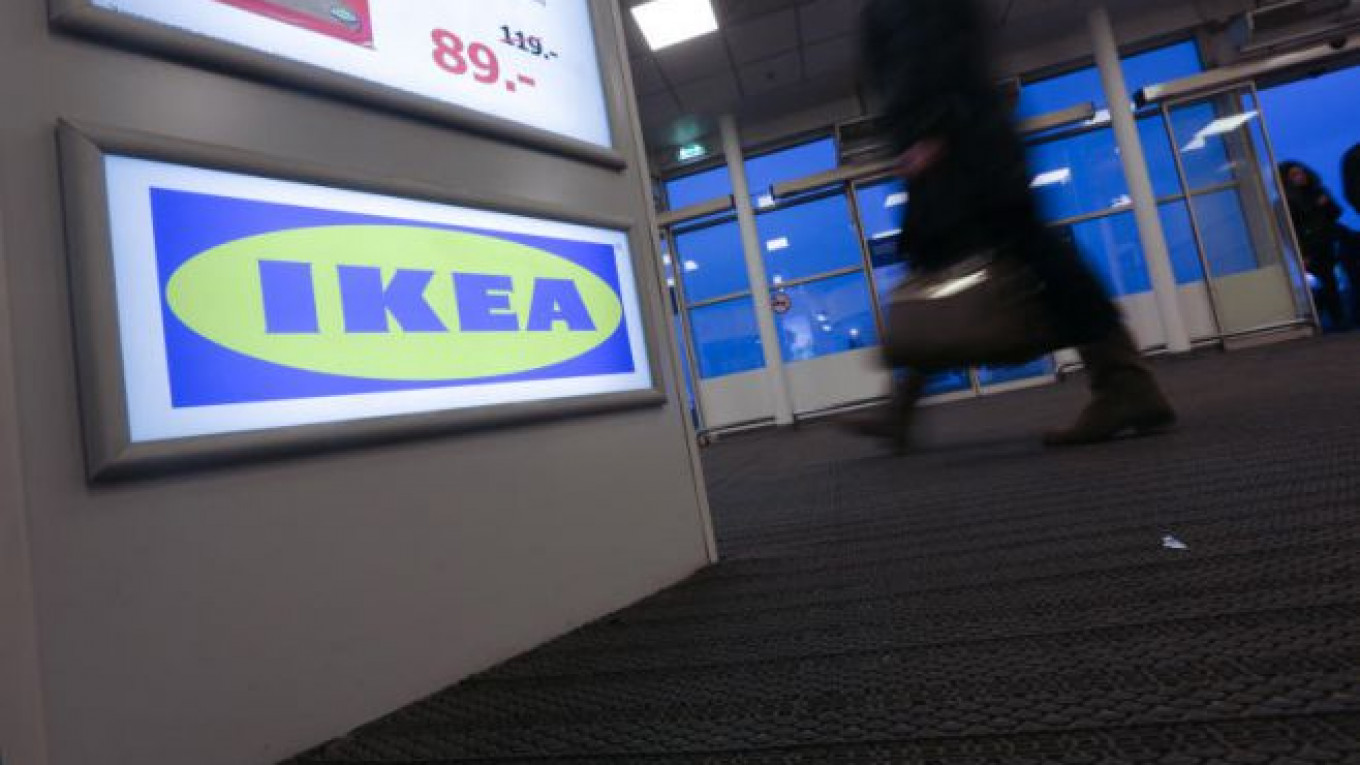Swedish furniture giant IKEA plans to expand the area of two shopping centers it operates in the Moscow region nearly 30 percent by 2018 thanks to high tenant demand, newspaper Kommersant reported Friday, citing an IKEA executive.
"We are already holding talks with the Moscow and Moscow region governors' administrations in order to expand [the MEGA shopping center] in Tyoply Stan by 50,000 square meters and [the one] in Khimki by 70,000 square meters," IKEA's Russian division head Armin Michaely said, Kommersant reported.
The Typoly Stan mall currently has an area of 185,000 square meters, while the Khimki mall stands at 210,000 square meters, according to Kommersant.
Michaely said the expansion will help IKEA meet the high demand for space in its MEGA shopping centers.
"Only 2 percent of the space [in our malls] is available. But companies are constantly coming to us, [wanting] to open stores in our shopping malls," Michaely said. IKEA hopes to finish the expansions by 2018, pending approval from the Moscow city and regional governments.
IKEA currently owns and operate 14 MEGA-brand shopping centers across Russia. The typical MEGA mall is anchored by one IKEA furniture store that operates alongside a collection of international and domestic retail chains.
The Swedish company's expansion comes even as falling retail sales driven by Russia's economic downturn empty out Moscow's newest shopping malls. Shopping centers opened in 2013 and 2014 had an average vacancy rate of 13 percent in May, and vacancy rates for retail space will likely climb even higher this year as Russia's recession unfolds, real estate consultancy Jones Lang LaSalle said in a report.
Retail sales plummeted 9.8 percent year-on-year in April after falling 6.7 percent in the first quarter of the year, according to state statistics agency Rosstat. The World Bank expects the Russian economy to contract by 3.8 percent this year as Western sanctions over the Ukraine crisis and low oil prices repel investment.
A Message from The Moscow Times:
Dear readers,
We are facing unprecedented challenges. Russia's Prosecutor General's Office has designated The Moscow Times as an "undesirable" organization, criminalizing our work and putting our staff at risk of prosecution. This follows our earlier unjust labeling as a "foreign agent."
These actions are direct attempts to silence independent journalism in Russia. The authorities claim our work "discredits the decisions of the Russian leadership." We see things differently: we strive to provide accurate, unbiased reporting on Russia.
We, the journalists of The Moscow Times, refuse to be silenced. But to continue our work, we need your help.
Your support, no matter how small, makes a world of difference. If you can, please support us monthly starting from just $2. It's quick to set up, and every contribution makes a significant impact.
By supporting The Moscow Times, you're defending open, independent journalism in the face of repression. Thank you for standing with us.
Remind me later.






